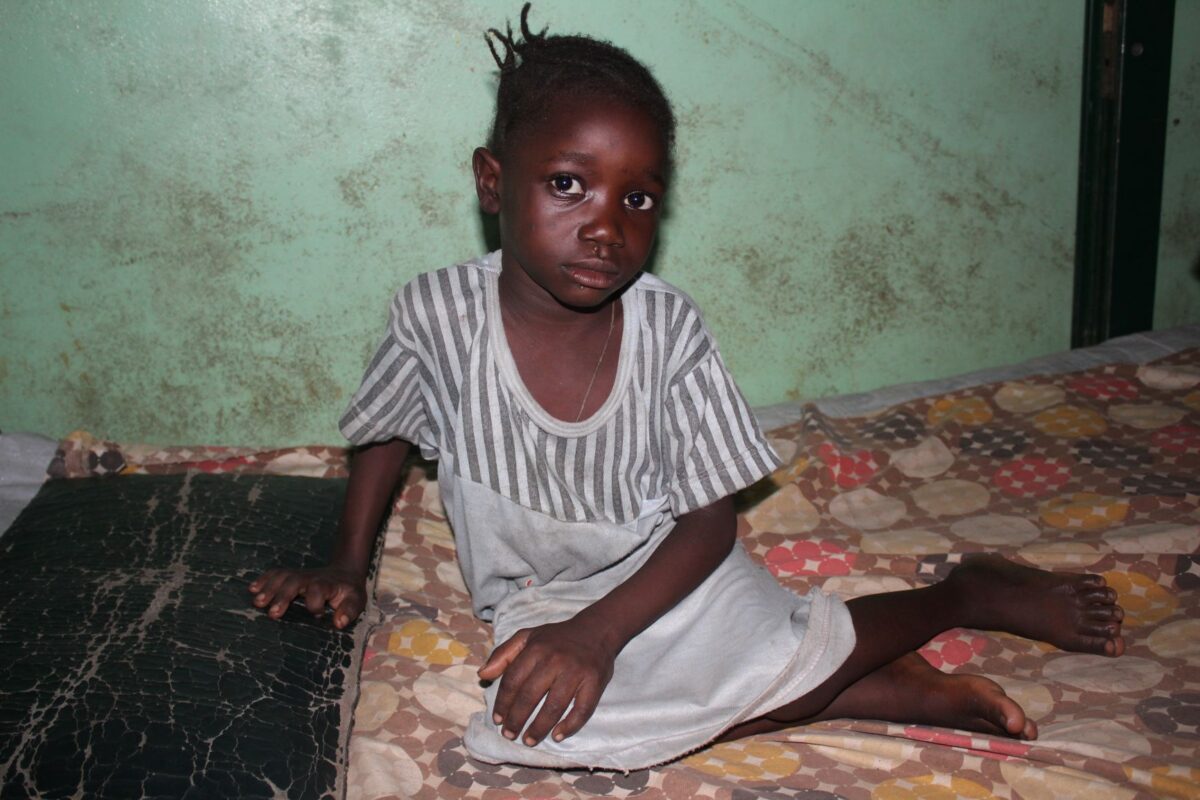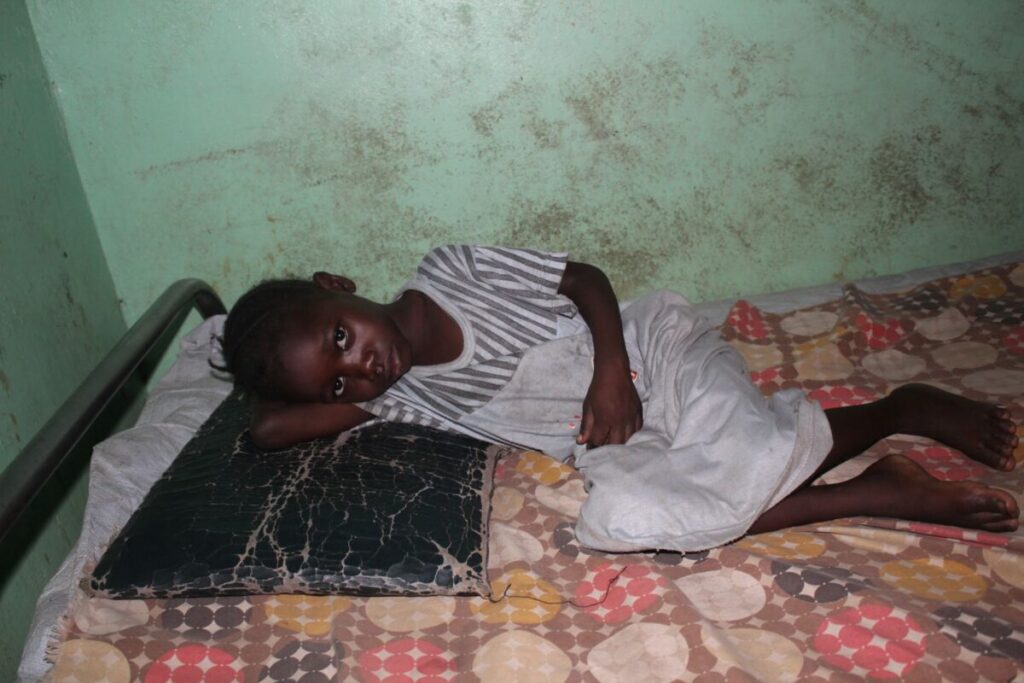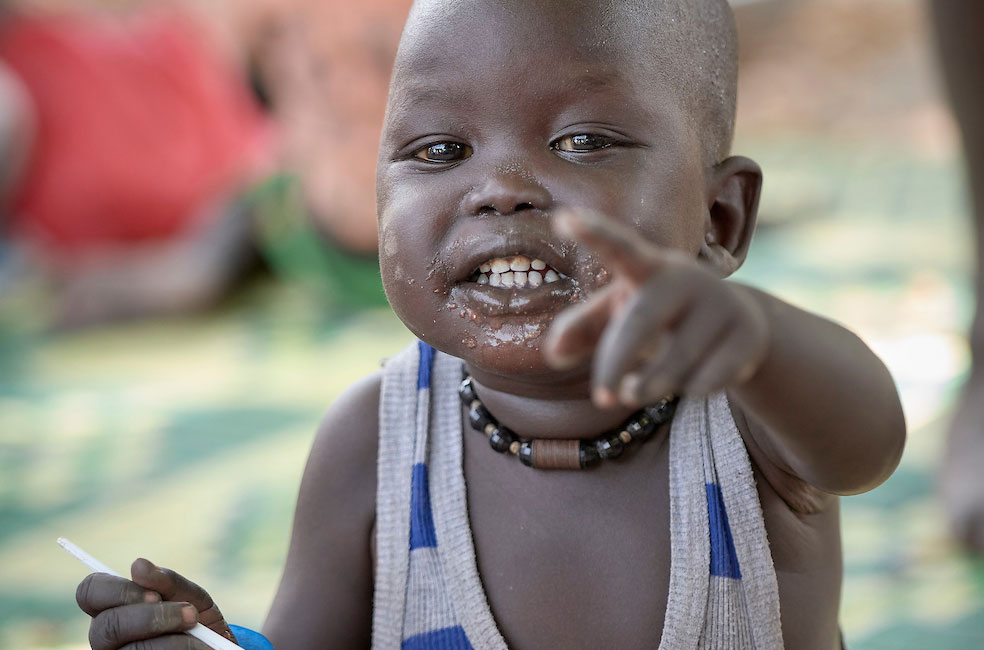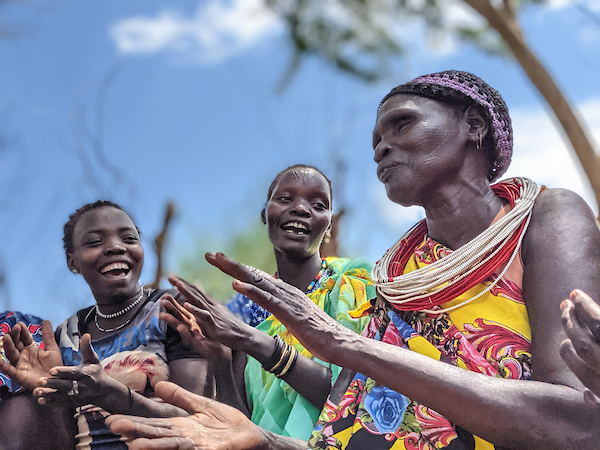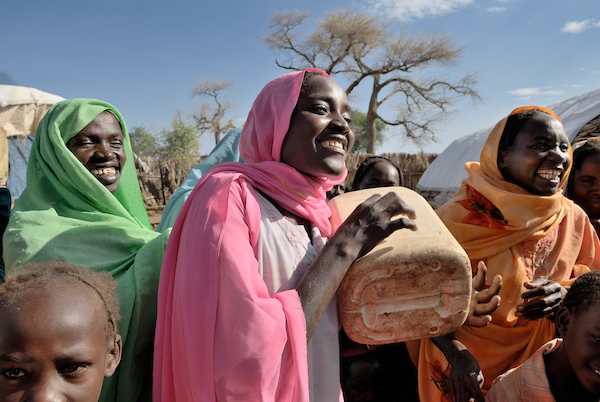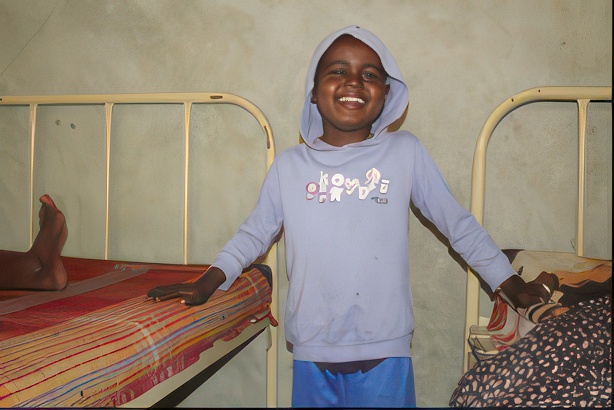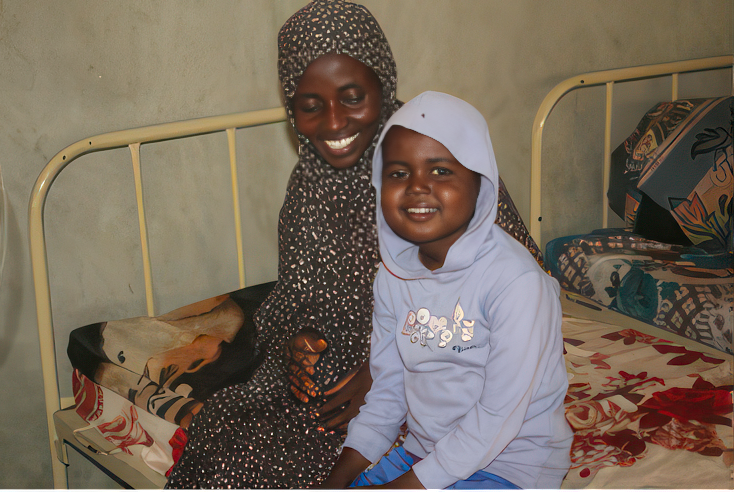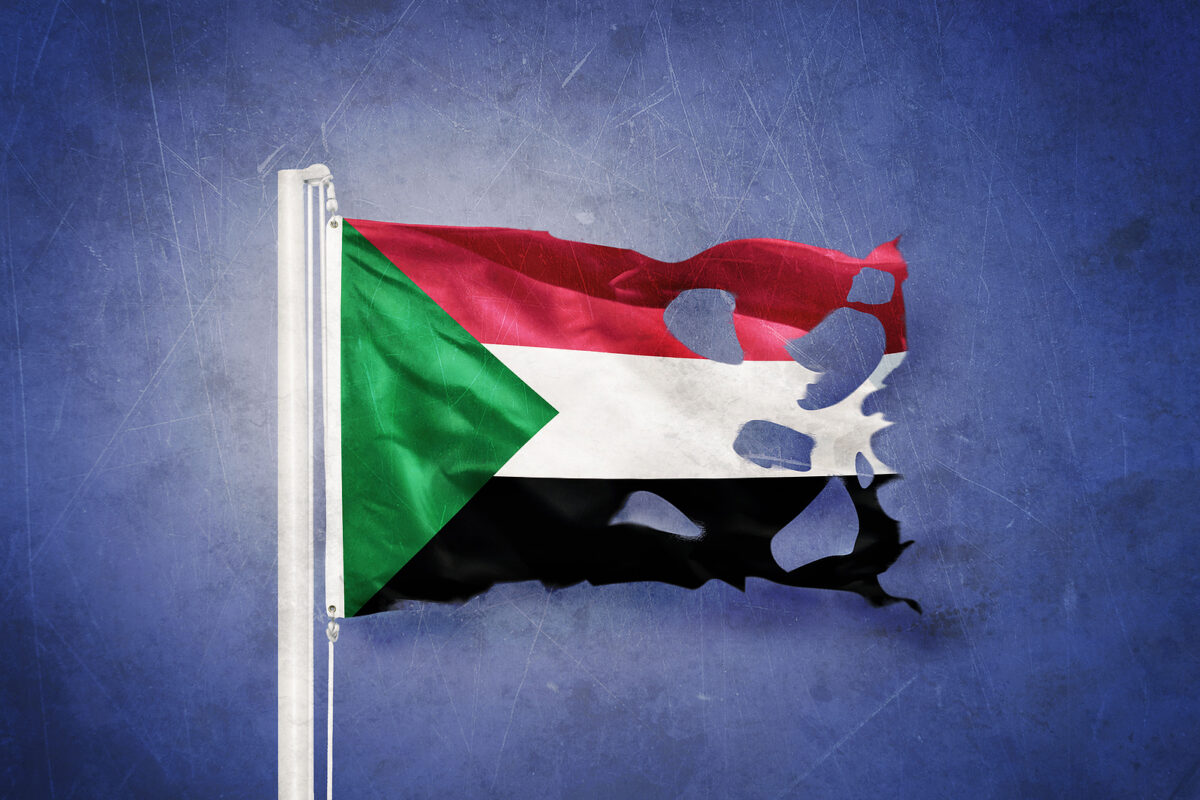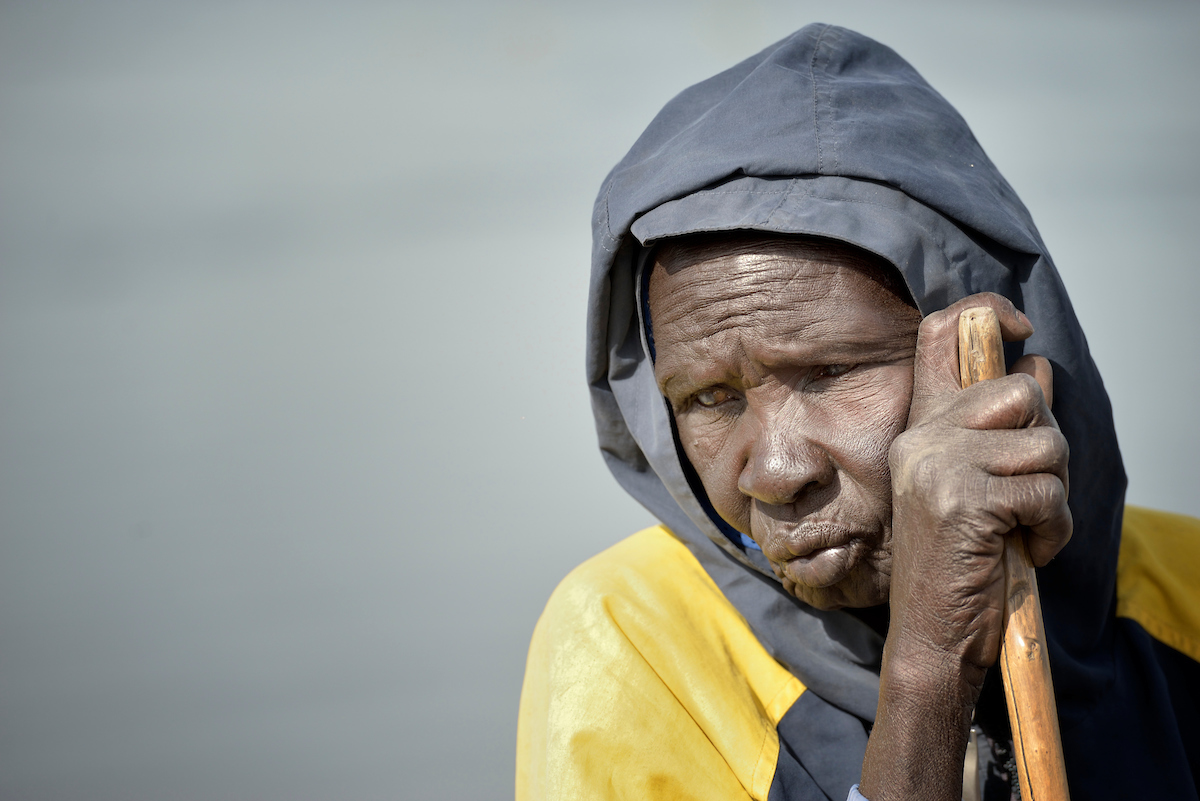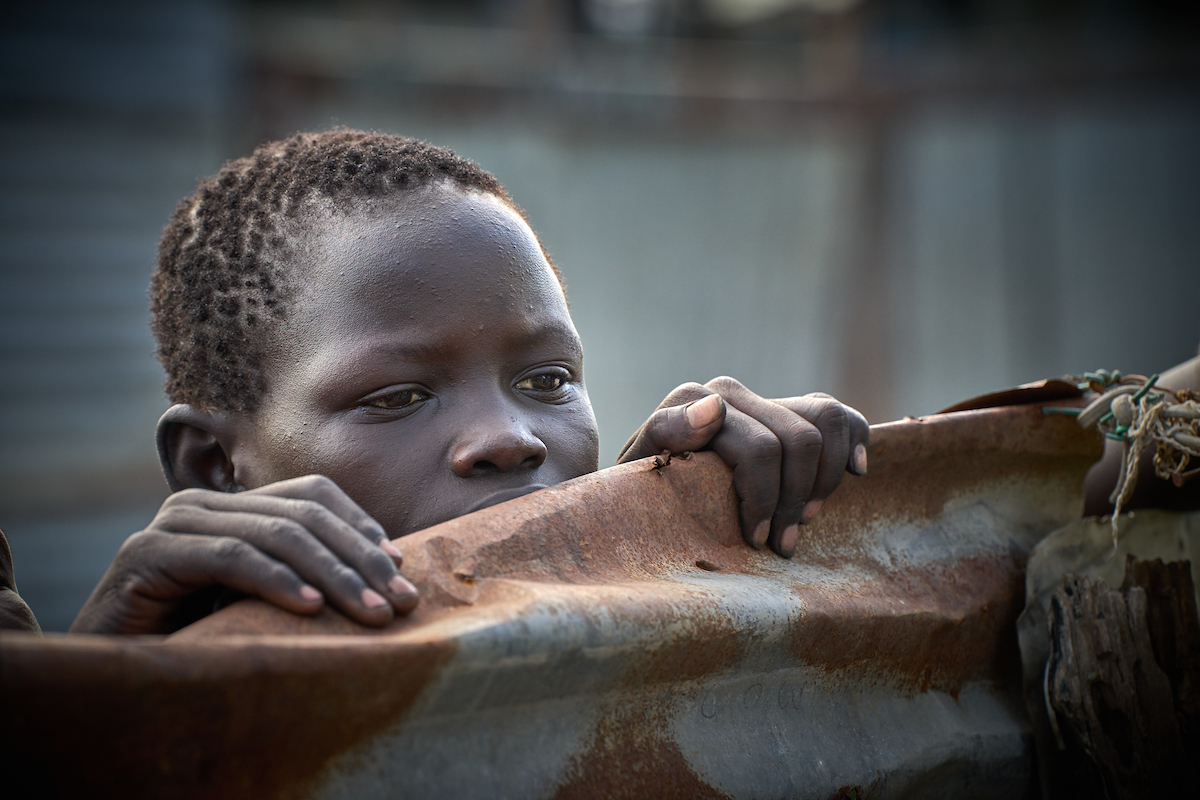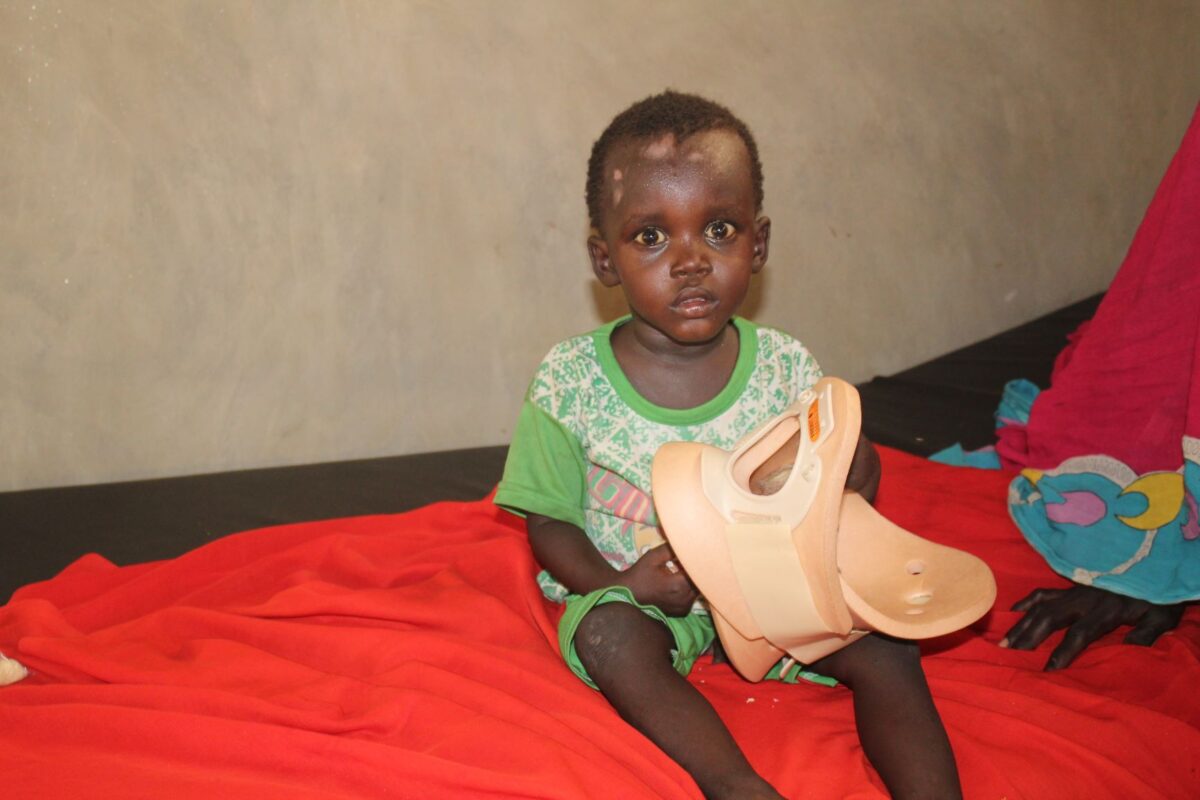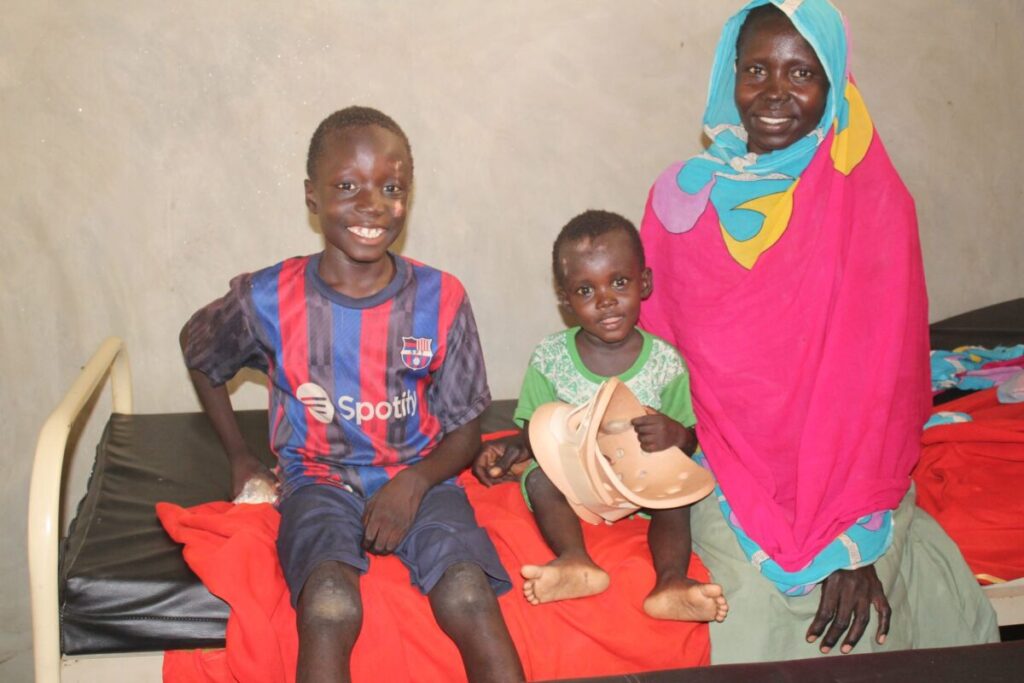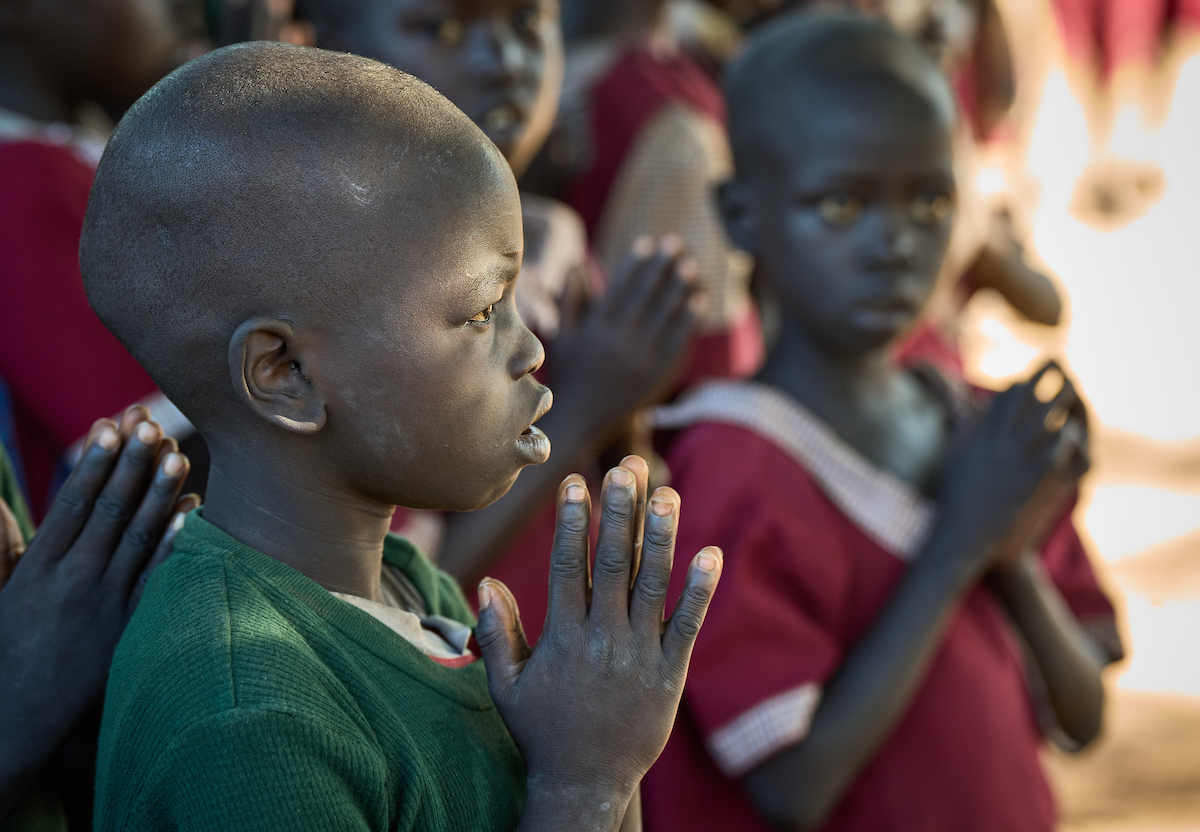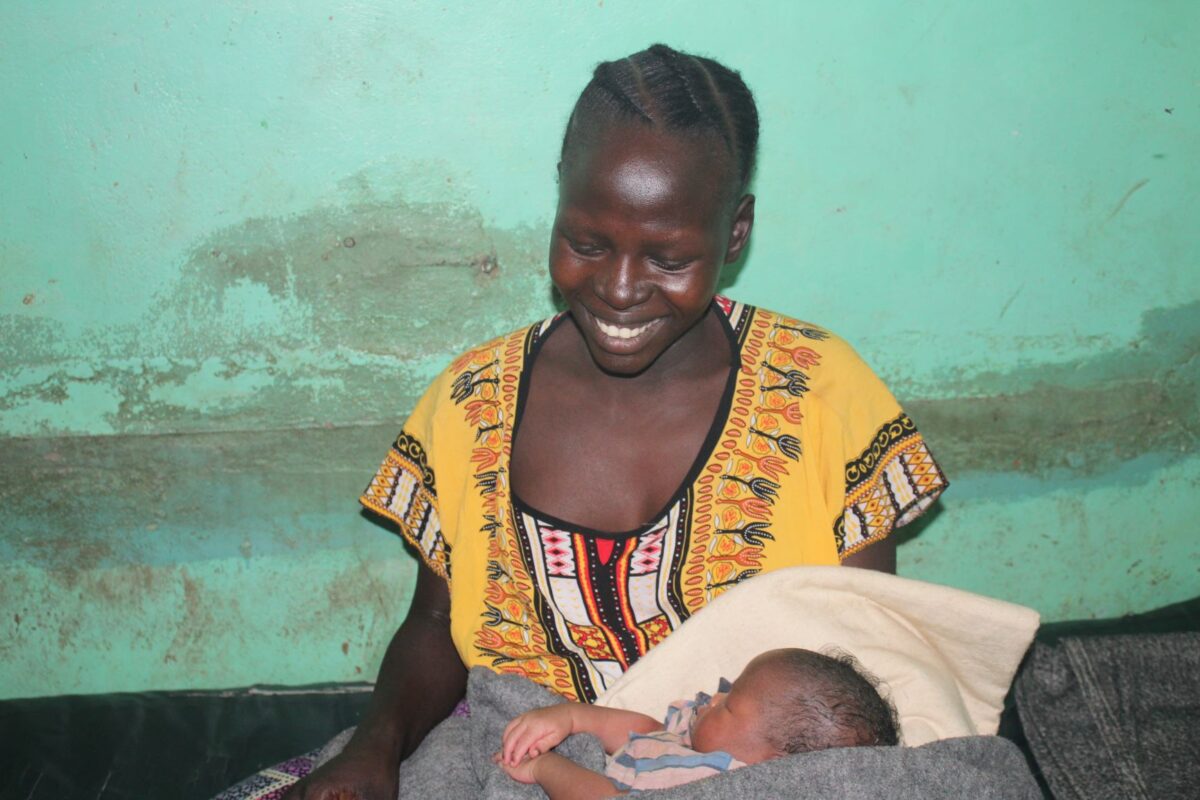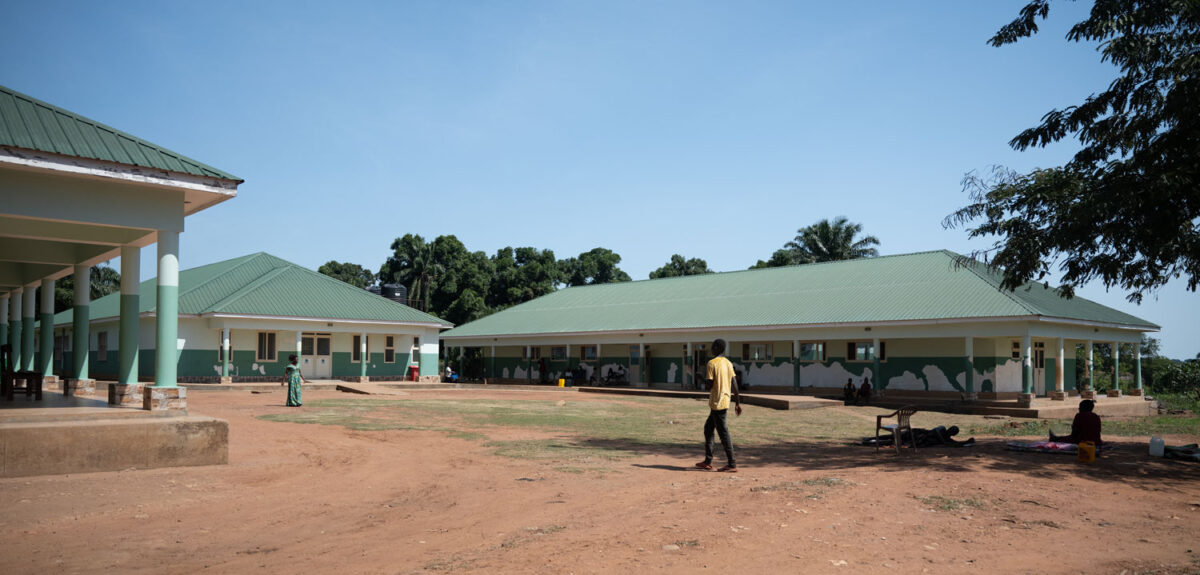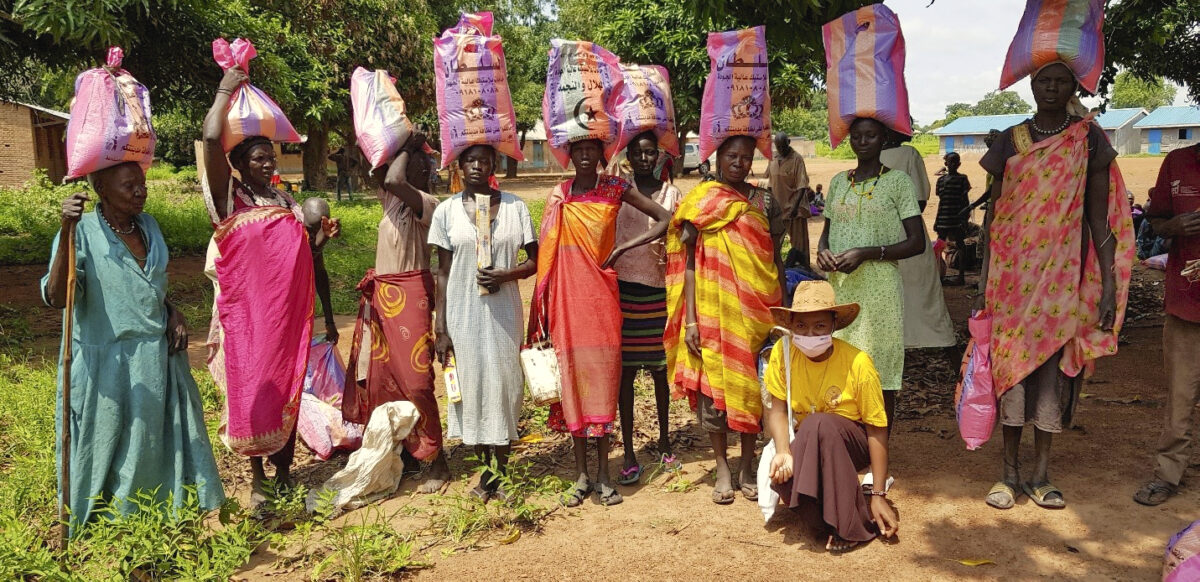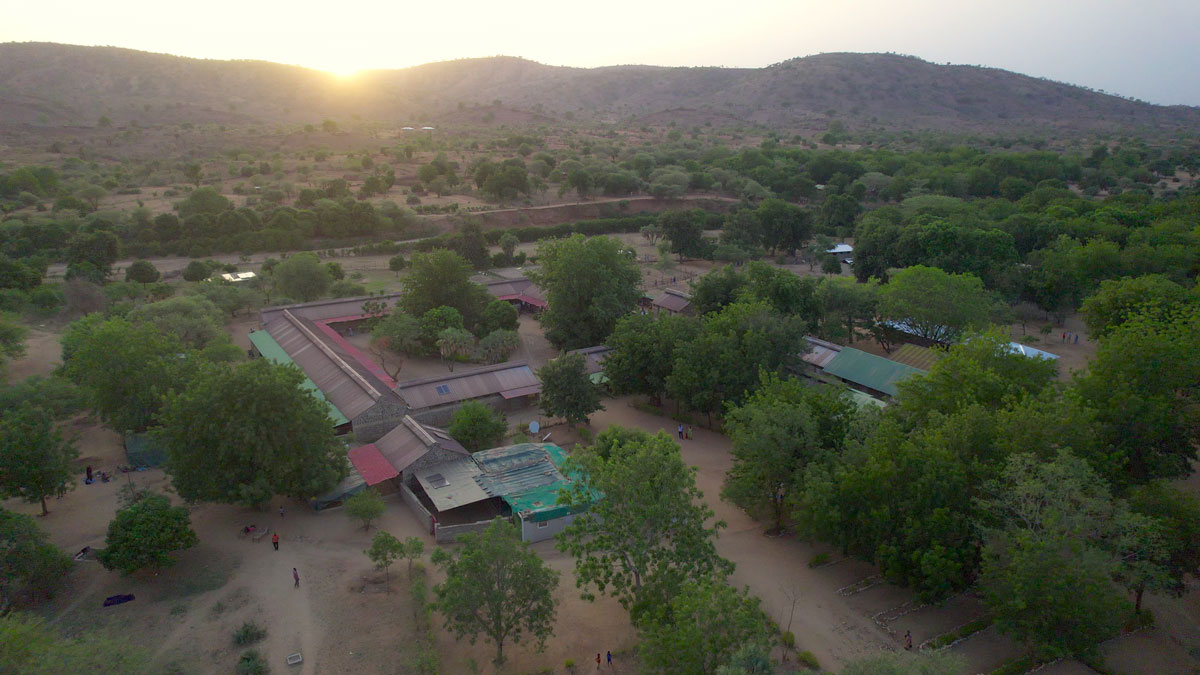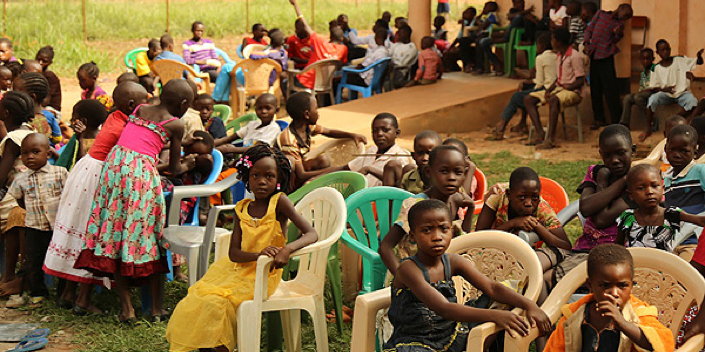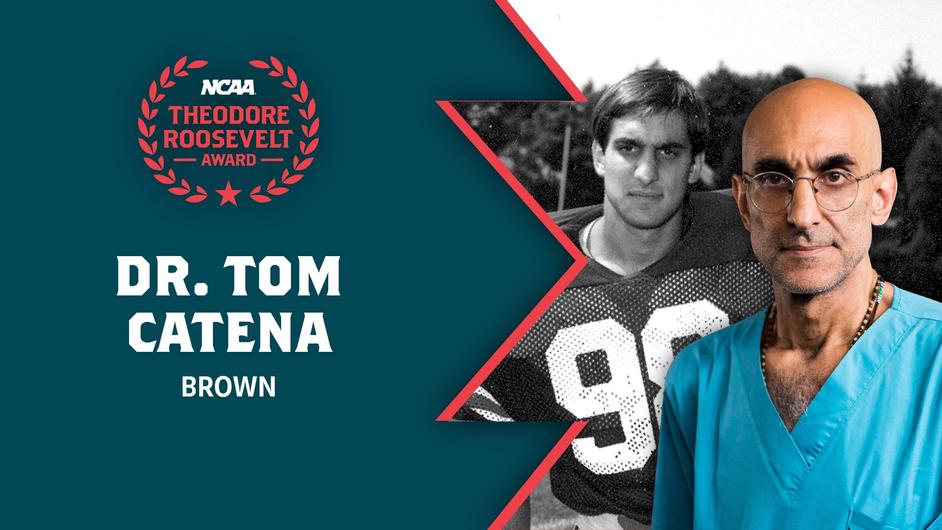
Dr. Tom Catena Honored as 2023 Theodore Roosevelt Award Recipient
Dr. Tom Catena, longtime partner of Sudan Relief Fund, has been named this year’s recipient of the NCAA Theodore Roosevelt Award in recognition of his 15 years of selfless service as a missionary doctor and hospital director in Sudan’s Nuba Mountains. He was formally recognized on Wednesday, January 10, 2024, at the NCAA Convention Welcome and Awards Presentation in Phoenix, Arizona.
The award is given in honor of a “distinguished citizen of national reputation and outstanding accomplishment, who graduated from an NCAA member institution and earned a varsity athletics award or participated in competitive intercollegiate athletics.” The individual who receives the Theodore Roosevelt Award “exemplifies the ideals to which collegiate athletics programs and amateur sports competitions are dedicated through their personal example and societal contributions.”
Dr. Tom was instrumental in founding Mother of Mercy Hospital which serves a population of over a million people in the remote region of Nuba, where few have access to medical treatment. The Sudan Relief Fund sponsored facility is the only one of its kind for hundreds of miles in all directions. There Dr. Tom works seven days a week as the only resident surgeon. He sees up to 400 patients a day and is on call every night. Dr. Tom has worked through times of warfare, intense political persecution, and survived bombing raids and serious illnesses – including one severe bout of malaria that put him in a coma. Nevertheless he remains steadfast to continue serving the under-reached people of Nuba.
Dr. Tom Catena is a graduate of the ivy league Brown University, where he majored in engineering and distinguished himself as an All American football player. He later felt called to move into the medical field to do medical missionary work. Since 2009, he has worked in partnership with Sudan Relief Fund to bring medical care to the people of Nuba, at Mother of Mercy Hospital and through a medical training program he recently established to put more healthcare professionals in the field locally.
Dr. Tom notes how the principles of success in sports, similar to those he used playing college football at Brown, equate with life challenges – lessons like consistent hard work and persevering through adversity.
“There are direct correlations between a sport and the life I certainly experience here in the Nuba Mountains,” he said. “We’ve had multiple times when I was the only doctor here … There’d be 100 wounded (soldiers) come in during the middle of the night, and I, along with my small team, would have to get through all those patients and be up all night working.”
It’s not the first time Dr. Tom’s laudable record of self-sacrifice has been recognized. He is known locally as a hero of the people, and has received international honors including the 2017 Aurora Prize Laureate for Awakening Humanity, the 2018 Catholics in Media Associates Social Justice Award, and the 2020 Gerson L’Chaim Prize for outstanding Christian medical missionary service.
True to his character, Dr. Tom’s perspective is laser focused on his lifesaving work. He delights that the NCAA award brings publicity to the needs of people in this remote outpost of Sudan. He continually focuses on moving forward, including his current push to establish local clinics staffed with professionals he’s trained himself, to give more of the population access to healthcare. Read the full article here.

